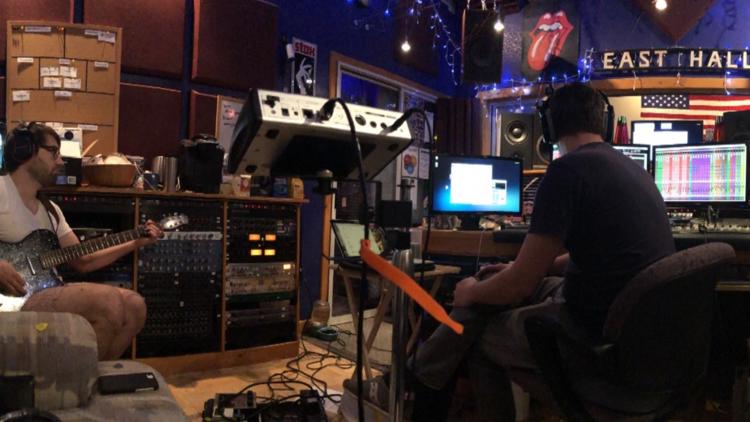A Historic Studio Faces Uncertain Future Amid Highway Expansion
For over two decades, East Hall Recording Studio has been a cornerstone of the Fayetteville music scene. Located on a three-acre lot, the studio has not only served as a workspace for local musicians but also as a home for its owner, Chris Moore, and his family. However, this legacy is now at risk due to an ongoing highway expansion project that threatens to displace the studio.
The Arkansas Department of Transportation (ARDOT) is moving forward with plans to expand Highway 112, a project aimed at improving connectivity between Fayetteville and Bentonville. As part of this initiative, East Hall Recording Studio has been identified as one of the properties affected by the development. Moore, who purchased the land and built the studio from the ground up in 2005, was notified in 2022 that his property falls within the construction zone for a 1.4-mile stretch of the expansion project.
Legal Challenges and Financial Struggles
The state’s use of eminent domain has placed Moore in a difficult position. He described the situation as being “completely in limbo, personally and professionally.” Since learning of the potential acquisition, Moore has been engaged in negotiations with ARDOT over compensation. However, he claims the initial offer from the agency is far below what he needs to relocate or rebuild.
According to Moore, the offer was approximately 54% of the amount required to find a comparable property. This discrepancy has led to months of back-and-forth discussions without a resolution. ARDOT maintains that all valuations are conducted by third-party appraisers following federal guidelines. The department emphasized its commitment to providing just compensation while acknowledging the emotional toll of such decisions.
“We are very sensitive to that and it’s really painful on both us and them,” said Ellen Coulter, media communications manager for ARDOT. She added that if the landowner believes the offer is unfair, they can counter and attempt to reach an agreement.
Impact on Business and Community
Despite the uncertainty, Moore has not given up on his passion. He explained that his business has been effectively shut down since January, with little to no income during that time. The process of dismantling the studio has already begun, but Moore remains determined to continue his work.
“I want to keep doing this,” he said. “This is what I love to do, and I’ve always felt like this job makes a difference.”
Moore has received support from the local music community, which has reinforced his resolve. Many artists and collaborators have expressed their appreciation for the studio’s role in fostering creativity and collaboration.
Fundraising Efforts to Save the Studio
To help offset the financial burden, Moore is organizing a 20th Anniversary Bash and Relocation Fundraiser on Sunday, July 20, at George’s Majestic Lounge in Fayetteville. The event will feature performances from local musicians who have worked with him over the years. Proceeds from ticket sales will be used to support the relocation of the studio to a new, larger space if necessary.
Tickets for the fundraiser are priced at $17.83 in advance, with prices increasing on the day of the event. Additionally, Moore has launched a petition to gather public support for the preservation of East Hall Recording Studio.
A Fight for Preservation
As the expansion project moves forward, the fate of East Hall Recording Studio remains uncertain. Moore continues to negotiate with ARDOT and seek alternative solutions to save the studio. His efforts highlight the challenges faced by small businesses when large infrastructure projects encroach on their spaces.
The story of East Hall Recording Studio reflects a broader issue: how communities balance progress with the preservation of cultural landmarks. For now, Moore remains hopeful that through community support and continued advocacy, the studio can find a way to survive and thrive in its next chapter.







